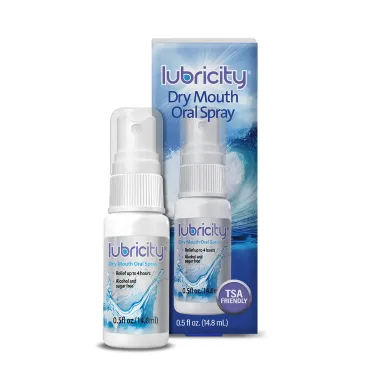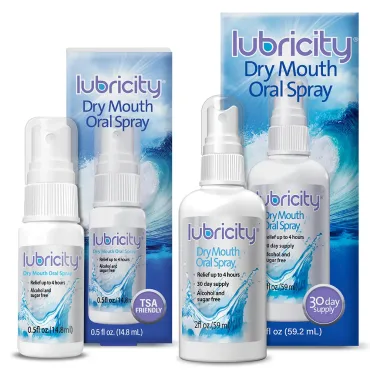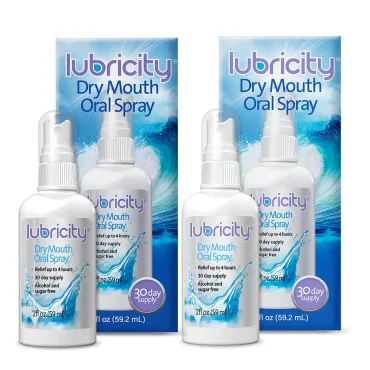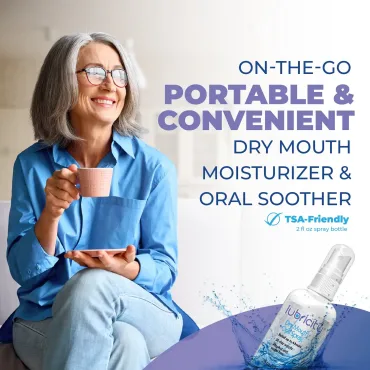Have you ever experienced a dry mouth? That uncomfortable feeling, when your mouth becomes parched and lacking in saliva, can be quite bothersome. While dry mouth is a common condition that can occur for various reasons, it is also prevalent among individuals with Parkinson’s disease. Parkinson’s is a complex neurological disorder that affects movement and can give rise to a range of non-motor symptoms, including dry mouth.
In this article, we will delve into the underlying mechanisms behind dry mouth in Parkinson’s, explore potential treatment options, and shed light on how this symptom impacts the lives of those with the disease.
What's the Connection Between Parkinson's and Dry Mouth?
When we think of Parkinson’s disease, we often associate it with motor symptoms such as tremors and stiffness. However, this disorder affects more than just movement. It can also lead to non-motor symptoms, and dry mouth is one of them. So, how exactly are Parkinson’s and dry mouth connected?
Parkinson’s disease affects the nervous system, specifically the part of the brain responsible for producing dopamine. This neurotransmitter plays a crucial role in regulating movement and other bodily functions.
However, the effects of Parkinson’s are not limited to dopamine depletion alone. The disease can also disrupt the autonomic nervous system, which controls involuntary bodily functions such as digestion, heart rate, and saliva production.
In individuals with Parkinson’s, the autonomic nervous system may malfunction, leading to reduced saliva production. Saliva is essential for maintaining oral health as it helps to lubricate the mouth, neutralize acids, and prevent the growth of bacteria. When saliva production decreases, it can result in a dry mouth, which not only causes discomfort but can also lead to dental problems and difficulties with speaking and swallowing.
You may also read: What Vitamin Deficiency Causes Dry Mouth?
Treatment Options for Dry Mouth in Parkinson's
If you or a loved one with Parkinson’s is experiencing dry mouth, there are various treatment options available to alleviate this symptom. Here are a few approaches that can help:
- Medication Adjustments
Sometimes, dry mouth in Parkinson’s can be a side effect of the medications used to manage the motor symptoms of the disease. In such cases, adjusting the dosage or switching to an alternative medication may help alleviate dry mouth while still effectively managing other symptoms. It is crucial to consult with a healthcare professional, preferably a neurologist specializing in Parkinson’s, to discuss medication adjustments. - Oral Hygiene Practices
Maintaining good oral hygiene is essential for managing dry mouth. Regular brushing and flossing, along with using fluoride toothpaste and mouth rinses, can help keep your mouth clean and reduce the risk of dental issues. Your dentist may also recommend artificial saliva substitutes or saliva stimulants that can provide temporary relief from dry mouth. - Hydration and Diet
Staying hydrated is vital for overall health and can help combat dry mouth. Sipping water throughout the day, especially during meals, can provide some relief. Additionally, avoiding caffeine, alcohol, and sugary foods and beverages can help minimize dry mouth symptoms. - Moisture-Enhancing Products
There are various over-the-counter products designed to alleviate dry mouth symptoms. These include dry mouth spray, oral gels, and specially formulated toothpaste and mouthwashes. These products can help increase moisture in the mouth and provide temporary relief from dryness.
Living with Dry Mouth in Parkinson's
Dry mouth can significantly impact the daily lives of individuals with Parkinson’s. It can affect their ability to speak clearly, taste food properly, and enjoy meals. Moreover, the discomfort caused by dry mouth can lead to difficulties in wearing dentures and increase the risk of oral infections.
It is essential for individuals with Parkinson’s and their caregivers to be aware of dry mouth as a potential symptom and take proactive measures to manage it. Regular dental check-ups, following good oral hygiene practices, and discussing dry mouth with healthcare professionals are essential steps in maintaining oral health and overall well-being.
Dry mouth is a common non-motor symptom experienced by individuals with Parkinson’s disease. Understanding the underlying mechanisms behind this symptom can help individuals and their healthcare providers develop effective strategies for managing and alleviating dry mouth.
By making necessary adjustments to medications, practicing good oral hygiene, and exploring moisture-enhancing products, individuals with Parkinson’s can find relief from dry mouth and improve their overall quality of life.
Lubricity is a Proud Supporter of the
What do customers say about Lubricity Dry Mouth Spray?













